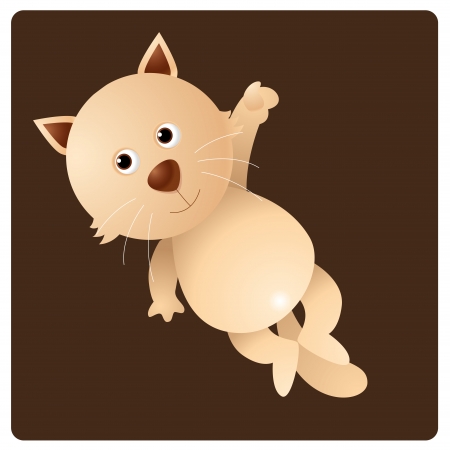1. Overfeeding Your Fish
Many fish owners give their pets too much food, leading to uneaten leftovers that pollute the water and harm water quality. Overfeeding is one of the most common mistakes new fish owners make, and it can cause serious health problems for your aquatic pets.
Why Overfeeding Is Harmful
When excess food accumulates in the tank, it starts to break down, releasing harmful toxins like ammonia and nitrites. These substances can make your fish sick and even lead to fatal conditions. Additionally, overfed fish may develop digestive issues, obesity, or swim bladder problems.
Signs You Might Be Overfeeding
- Uneaten food remains in the tank after a few minutes.
- The water becomes cloudy or develops a foul odor.
- You notice an increase in algae growth due to excess nutrients.
- Your fish appear bloated or sluggish.
How to Feed Your Fish Properly
The key to proper feeding is giving your fish just enough food that they can consume within 2-3 minutes. Here are some tips to avoid overfeeding:
| Tip | Description |
|---|---|
| Feed Small Amounts | Only give as much food as your fish can eat within a couple of minutes. |
| Use a Feeding Schedule | Most fish only need to be fed once or twice a day. |
| Avoid Dumping Food | Add food in small portions instead of pouring in large amounts at once. |
| Monitor Your Fish | If they stop eating quickly, remove any uneaten food to prevent contamination. |
The Role of a Healthy Diet
A balanced diet is essential for keeping your fish healthy. Different species have different dietary needs, so research what’s best for your specific type of fish. Providing high-quality pellets, flakes, and occasional treats like frozen or live food will ensure they receive proper nutrition.
2. Feeding the Wrong Type of Food
Not all fish eat the same diet. Providing improper food can lead to malnutrition, digestive issues, and even serious health complications. Understanding what your fish need is essential for their well-being.
Know Your Fishs Diet
Fish species have different dietary needs. Some are herbivores, others are carnivores, and many are omnivores. Feeding them the wrong type of food can cause problems such as bloating, lethargy, or even organ damage.
Common Fish Diet Categories
| Diet Type | Description | Examples of Fish | Recommended Food |
|---|---|---|---|
| Herbivores | Eat plant-based foods | Mollies, Plecos | Algae wafers, blanched vegetables |
| Carnivores | Require protein-rich foods | Betta fish, Arowana | Bloodworms, brine shrimp |
| Omnivores | Eat both plants and protein sources | Goldfish, Guppies | Flakes, pellets, vegetables |
Avoid Low-Quality or Improper Foods
Cheap fish food often lacks essential nutrients. Additionally, feeding land-based meats like chicken or beef to carnivorous fish can cause digestive issues because fish are not adapted to process them properly.
Signs Youre Feeding the Wrong Food:
- Fish refusing to eat or spitting out food
- Bloating or difficulty swimming
- Pale colors or fin deterioration
- Lethargy and lack of activity
Choosing the Right Food for Your Fish
Select high-quality food specifically designed for your fish species. If unsure, check with a pet store expert or research your fishs natural diet. Providing the right nutrition ensures they stay healthy and vibrant.
Pro Tip:
If you keep multiple fish species in the same tank, ensure they all receive appropriate food by offering a mix of sinking pellets, floating flakes, and fresh ingredients suited for each species.

3. Ignoring a Feeding Schedule
Inconsistent feeding can stress your fish and disrupt their natural behavior, leading to poor health and immune system issues. Just like any other pet, fish thrive on routine. When you feed them at random times or skip feedings without a pattern, it can cause anxiety and even lead to aggressive behavior among tank mates.
Why a Consistent Feeding Schedule Matters
Your fish rely on consistency for their overall well-being. A structured feeding schedule helps regulate their metabolism, promotes healthy digestion, and prevents overeating or underfeeding. Here’s why maintaining a routine is crucial:
| Issue | Impact on Fish |
|---|---|
| Feeding at random times | Causes stress and erratic behavior |
| Skipping meals frequently | Lowers immunity and weakens health |
| Overfeeding in one session | Poor digestion and water contamination |
How to Create a Proper Feeding Routine
Avoid these issues by establishing a consistent feeding schedule that aligns with your fish’s needs. Follow these simple guidelines:
- Feed at the same time daily: Most fish do well with one or two feedings per day, ideally in the morning and evening.
- Avoid overfeeding: Offer only what they can eat within 2-3 minutes to prevent excess waste.
- Observe your fish: Watch their eating habits to ensure all fish are getting food and adjust portions as needed.
- Create a backup plan: If you travel often, consider an automatic feeder to maintain consistency.
4. Using Expired or Low-Quality Food
Many fish owners don’t realize that fish food has an expiration date. Old or poor-quality fish food loses nutritional value and can contain harmful bacteria or toxins that negatively impact your fish’s health. Feeding expired or low-quality food can lead to malnutrition, digestive issues, and even illness.
Why Expired or Low-Quality Food Is a Problem
- Nutritional Loss: Over time, vitamins and essential nutrients break down, making the food less beneficial for your fish.
- Bacterial Growth: Stale food can develop harmful bacteria and mold, which may cause infections or digestive problems.
- Toxin Build-Up: Some expired foods release toxins that can contaminate the water and harm your fish.
How to Ensure Your Fish Gets Fresh and High-Quality Food
To keep your fish healthy, follow these tips when choosing and storing their food:
| Tip | Description |
|---|---|
| Check Expiration Dates | Always check the expiration date before buying or using fish food. |
| Avoid Bulk Buying | If you have only a few fish, avoid buying large containers of food that may expire before you use them up. |
| Store Properly | Keep fish food in a cool, dry place in an airtight container to prevent moisture and bacterial growth. |
| Select High-Quality Brands | Invest in reputable brands with high nutritional content rather than cheap, filler-heavy options. |
| Avoid Opened or Stale Products | If the food smells bad, looks discolored, or clumps together, it’s best to discard it. |
5. Not Considering Dietary Variety
Fish need a varied diet to stay healthy. Relying solely on one type of food can lead to nutritional deficiencies and long-term problems. Just like humans, fish require a balanced diet that includes different nutrients to support their growth, immune system, and overall well-being.
Why a Varied Diet Is Important
Feeding your fish the same food every day might seem convenient, but it can result in missing essential vitamins and minerals. Some fish species are omnivores, while others are herbivores or carnivores, meaning their dietary needs differ significantly.
Types of Fish Food to Consider
To ensure your fish get all the necessary nutrients, consider incorporating different types of food into their diet:
| Type of Food | Description | Best For |
|---|---|---|
| Flakes & Pellets | Common staple food with balanced nutrients. | Most freshwater and saltwater fish. |
| Frozen & Live Food | Includes bloodworms, brine shrimp, and daphnia for protein. | Carnivorous and omnivorous fish. |
| Vegetables & Algae Wafers | Provides fiber and plant-based nutrients. | Herbivorous and algae-eating fish. |
| Gel Food & Homemade Diets | Customizable nutrition for specific species. | Specialty fish requiring specific diets. |
How to Introduce Dietary Variety
- Alternate Food Types: Rotate between flakes, pellets, frozen, and live foods throughout the week.
- Add Fresh Vegetables: Blanched spinach, zucchini, or peas can be great additions for herbivorous fish.
- Observe Your Fish: Pay attention to how they react to different foods and adjust accordingly.
- Avoid Overfeeding: Introducing variety doesnt mean overfeeding—stick to proper portion sizes.
Common Mistakes When Feeding a Varied Diet
While variety is crucial, its also important to avoid common mistakes:
- Mixing incompatible foods: Some fish may not eat certain types of food. Research your species before adding new items.
- Ignoring dietary needs: A carnivorous fish won’t benefit from an entirely plant-based diet.
- Poor-quality food choices: Opt for high-quality brands to ensure optimal nutrition.
Diversifying your fish’s diet will help them thrive by providing all the essential nutrients they need. By making small adjustments, you can improve their health and longevity significantly!


